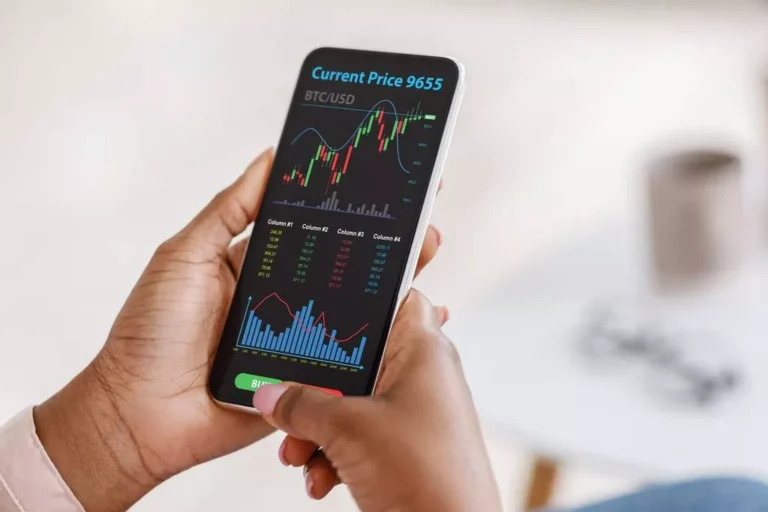18 Eki How do Trading Brokers Make Money?
Content
The main way that Forex brokers make money is by keeping the spread or charging a set fee per round turn. Some brokers even charge both, but that’s becoming less common these days as the commoditization of the business Stockbroker demands lower pricing. Unfortunately, some less than scrupulous Forex brokers have previously mentioned that they have commission free trades, but what they typically do is charge more in the spread to make up the difference. Still another way that NDD forex brokers may make money is by providing more personalized services—again, for an extra optional fee. Examples of such services may include a wider range of asset classes or currency pairs, individualized investing education or financial guidance, advanced research and investing tools—you get the idea. Non-market maker forex brokers go by various names, including no dealing desk brokers, NDD brokers, STP (straight-through processing) brokers, ECN (electronic communication network) brokers and STP+ECN brokers.
How Do Non-Market Maker Forex Brokers Make Money? 🤔
Forex brokers play a crucial role in facilitating forex trading by connecting traders to the global currency market. While they provide a platform for traders to execute trades, they also need to generate revenue to sustain their operations. The primary sources of income for forex brokers include spreads, commissions, swap fees, and additional https://www.xcritical.com/ services.
How much commission do forex brokers charge?

If this is concerning to you, you may want brokers payment system to consider investing with a large institution. But if all you need is a no-frills investment account, then trimmed-down apps or relatively new brokerage firms are likely fine for you. In this scenario, when the traders exited their long positions, they expected to receive their profit in their account. Assuming this is all the GBP/USD positions that the broker has on its book, its market risk exposure is zero.
What is the difference between a trading broker and a stockbroker?
For example, if you buy a currency pair, the forex broker sells the same pair, and if you sell a currency pair, the broker buys it. The mechanism hinges on the interest rate differential between the two currencies in a pair. When traders hold a position after the market closes, brokers apply a rollover fee that corresponds to the cost or gain of holding that position. The trader pays the fee if they are in a short position on the currency with the higher interest rate, or earns it if they are in a long position on that currency. Other common fees may crop up if you want assistance from a human being. Here, more typically you will find this if you want to talk to a financial expert rather than if you just need general customer support.

This means that you’ll need to pay an extra £20, just to initiate the trade. In addition to those features, the companies that made our list of the best brokers don’t charge commissions when trading stocks or exchange-traded funds. Other fees may creep up — most commonly, brokers tend to charge contract fees to trade more complex investments like options, and there may be fees to transfer investments out of your account.
It is the largest source of income for the broker in the forex trading market. Basically, the spread is the difference between the Bid and Ask rates. Watch our video discussion, where we discuss how currency brokers make money and how to compare exchange rates effectively.
- Whenever Batman made a bet, Spider-Man did not go out into the “market” and search for another person to take the opposite side of the bet.
- However, there are some brokers who charge a processing fee from you.
- Some ETPs carry additional risks depending on how they’re structured, investors should ensure they familiarise themselves with the differences before investing.
- Trading fees are imposed on each transaction made by investors on the platforms, while non-trading fees usually come in the form of charges for services such as withdrawals or account inactivity.
- Some have been around for decades, while others are relatively new to the scene.
- Only one type of broker called a Market Maker broker will lose from providing leverage to its clients and this happens when traders profit.
As a result, you may incur interest charges on the borrowed currency. Brokers use trading commissions to generate revenue in a transparent manner, ensuring traders know exactly what their trading costs will be regardless of market conditions. This method appeals to traders using strategies that require tight spreads, as the costs are predictable and do not fluctuate with forex market volatility or liquidity. “B-Book” is a commonly used term in forex trading that refers to a method of managing trades where the broker takes the opposite side of the trader’s position. Essentially, when the trader places a buy order, the broker takes a sell order, and vice versa, without necessarily passing the trade onto a liquidity provider to hedge the risk (a-book model). With a NDD broker your trades are sent out to a liquidity pool(LP) with which the broker is working.

The most common variation is watching brokers that charge in-and-out commissions against brokers that don’t charge it but they mark up the spreads. Some Brokers don’t mark up the spread but they choose to charge you on a per-share basis. For example, they can offer a minimum order size such as 10$ and an additional 1 cent per share commission.
You open an account, and start selling – they buyer pays you and the money is transferred to your account. Meaning you don’t get paid by the middleman, but by the trader on the opposite side of the trade. In fact, you’d be surprised how little somebody running a Forex desk for a brokerage knows about actual trading. They worry about order flow, system analysis, statistical analysis, and that everybody gets what they asked for in an ordered manner. Understanding how Forex brokers make their money can help you choose the right broker. Most brokers have a handful of charges that they use to profit from their clients.
Brokers are compensated in commissions or fees that are charged once the transaction has been completed. Most discount brokerages now offer their customers zero-commission stock trading. It is essential for traders to understand how brokers make money to make informed decisions when choosing a broker. Factors such as spreads, commissions, and trading conditions should be carefully evaluated to ensure a fair and transparent trading experience. Technically, any forex broker has the potential to manipulate prices as a strategy to generate profits. However, this does not necessarily imply that they engage in such practices.
First, all RETAIL brokers in Spot Currency or Forex, are Market Makers and an Exchange rolled into one. What does this mean, well they “Make a Market”, in that they have enough liquidity of the pairs they carry to allow “Trades/Transactions” to take place on their hub. That is how it works in retail, so obviously if you get a dealer that is regulated you are much better off. Another way that some Forex brokers will make money is in financing the “loan”. Remember, when you buy or short a currency with margin, you are in fact taking out a loan.
If you are trading with dealing desk brokers, you have to pay to fix spreads and they will pay you your winnings. For example, if the market spread for EUR/USD is 1 pip, the broker may quote a spread of 2 pips. This means that the broker earns 1 pip for every trade executed by the trader. However, some brokers offer tight spreads to attract more traders. In order to understand the market risk for a specific currency pair, we need to add ALL of the broker’s positions against traders in this currency pair. A lot of retail traders have no idea of how an order is processed or how forex brokers or CFD providers really operate.
I don’t want to end up empty-handed so holding your $20 as collateral will protect me. If you try to leave without paying, your $20 will be forfeited to me. I just acquired spider-related abilities after a bite from a radioactive spider. Just because I wear a spandex suit with a spider symbol doesn’t mean I’m actually a spider.
These guidelines dictate how brokers should interact and engage with their clients. They encompass a span of practices including providing clear information, managing customer expectations effectively, and offering a high level of customer service. Unanticipated market events can lead to substantial losses for the broker, especially if a large number of clients make profitable trades against the broker’s position. Payment for order flow is a practice where a forex broker receives compensation for directing orders to particular market makers or liquidity providers. “Volume-based rebates” are incentives that liquidity providers give to brokers based on the trading volume of trades they pass through to the market. These rebates serve as a form of commission for the fkrex broker for directing high volumes of trades to the liquidity provider.



No Comments